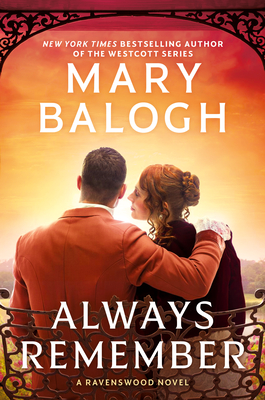 Always Remember (Ravenswood #3) by Mary Balogh
Always Remember (Ravenswood #3) by Mary Balogh Format: eARC
Source: supplied by publisher via Edelweiss
Formats available: hardcover, large print, ebook, audiobook
Genres: historical fiction, historical romance, regency romance
Series: Ravenswood #3
Pages: 366
Published by Berkley on January 16, 2024
Purchasing Info: Author's Website, Publisher's Website, Amazon, Barnes & Noble, Kobo, Bookshop.org, Better World Books
Goodreads
Lady Jennifer Arden and Ben Ellis know that a match between them is out of the question. Yet their hearts yearn for the impossible. Discover a new heartwarming story from New York Times bestselling author and beloved “queen of Regency romance” Mary Balogh.Left unable to walk by a childhood illness, Lady Jennifer, sister of the Duke of Wilby, has grown up to make a happy place for herself in society. Outgoing and cheerful, she has many friends and enjoys the pleasures of high society—even if she cannot dance at balls or stroll in Hyde Park. She is blessed with a large, loving, and protective family. But she secretly dreams of marriage and children, and of walking—and dancing.When Ben Ellis comes across Lady Jennifer as she struggles to walk with the aid of primitive crutches, he instantly understands her yearning. He is a fixer. It is often said of him that he never saw a practical problem he did not have to solve. He wants to help her discover independence and motion—driving a carriage, swimming, even walking a different way. But he must be careful. He is the bastard son of the late Earl of Stratton. Though he was raised with the earl’s family, he knows he does not really belong in the world of the ton.Jennifer is shocked—and intrigued—by Ben’s ideas, and both families are alarmed by the growing friendship and perhaps more that they sense developing between the two. A duke’s sister certainly cannot marry the bastard son of an earl. Except sometimes, love can find a way.
My Review:
 At the beginning of the Ravenswood series, back in Remember Love, I compared the late and more or less lamented Earl of Stratton, Caleb Ware, with the late and entirely unlamented Humphrey Westcott, Earl of Riverdale, the discovery of whose marital perfidy kicked off that series, and found both of them wanting in only slightly different ways and degrees.
At the beginning of the Ravenswood series, back in Remember Love, I compared the late and more or less lamented Earl of Stratton, Caleb Ware, with the late and entirely unlamented Humphrey Westcott, Earl of Riverdale, the discovery of whose marital perfidy kicked off that series, and found both of them wanting in only slightly different ways and degrees.
As that earlier series continued through the stories of all the family members impacted by the lies that were shockingly revealed upon Westcott’s death, the man was never redeemed – not even in memory. In fact, as the impacts of his lies rippled out in the years after his death, the worse a character he became.
Therefore, one of the fascinating things about Caleb Ware, Earl of Stratton, is the way that his memory has been redeemed in the years after his death. Not that he wasn’t unfaithful to his wife from the very beginning of their marriage, and not that he didn’t constantly seek love, approval and attention wherever he went, but the reasons behind his actions become clearer with each book – even though that book is centered around another character entirely.
That is especially true of this third book in the series, after Remember Love and Remember Me, because the male protagonist of this story is Ware’s illegitimate oldest son Ben, whose mother was, as it turns out, truly, the love of Ware’s life.
A woman of his own class who he would have married if he could have, but that would have made her guilty of the same sin as Humphrey Westcott. It would have made Lady Janette Kelliston, who her son only knew as plain ‘Jane Ellis’, a bigamist.
But this is, after all, Ben’s story and not the story of his parents, although his discovery of the truth about that relationship and so much more is a central part of his story. While he does not discover those truths until well into this story, it does set the stage for the things he already does know about himself.
That in spite of his complete and thoroughgoing acceptance by Caleb Ware’s legal family for all of Ben’s life, he is, and always will be, the Earl’s bastard. And therefore, not eligible to marry any of the girls – and now women – he meets as part of his membership in the Ware family.
Which means that when widowed Ben and his three-year-old daughter Joy come to Ravenswood Hall to celebrate the revival of the annual Summer Fete, even though he has marriage on his mind he does not expect to find anyone who would consider him suitable among his family’s aristocratic guests.
Because he is NOT suitable, as the rest of the world is all too willing to remind him. The question is whether he, and the woman with whom he falls in love in spite of all the whispers against it, are willing to damn the consequences and the social opprobrium likely to follow in their wake.
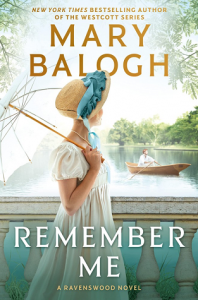 Escape Rating A-: I came into Always Remember with high hopes after a bit of disappointment with Remember Me. I liked the characters of that book well enough, but Lady Philippa Ware was a bit TOO perfect and too privileged to identify with and that affected my reading of her story quite a lot.
Escape Rating A-: I came into Always Remember with high hopes after a bit of disappointment with Remember Me. I liked the characters of that book well enough, but Lady Philippa Ware was a bit TOO perfect and too privileged to identify with and that affected my reading of her story quite a lot.
The heroine of this entry in the series, Pippa’s now sister-in-law Lady Jennifer Arden, is far from perfect – although she fakes it well. Not the perfect beauty that Pippa absolutely does have, but rather, a perfect amiability – or at least the appearance of it – that allows her to find as much happiness and fulfillment in the life that the lifelong disability that remains after a childhood illness (most likely polio) has left her with as is possible. Which is quite a lot if one puts their mind to it, which Lady Jennifer absolutely does.
So this is a romance between an unconventional hero – at least for a Regency romance – and an equally unusual heroine – for any romance at all. That it is their differences from the others around them that brings them together – even as their differences in social position pulls them apart – that made even the possibilities of this story something I was definitely looking forward to.
Ben Ellis and Lady Jennifer Arden find a bond because they are able to see behind each other’s masks to find the real person within. Both are in positions where they ‘should’ be grateful. He because his father’s family took him in and made him their own – as much as they could and considerably more than he knew he had any right to expect. Lady Jennifer’s entire family has rearranged itself, and continues to do so, in order to make sure that she is taken care of, has as much freedom and opportunity as they believe is safe for her, and in general has a good, well-privileged life with friends and opportunities and someone always available to take care of her.
But they are both in pursuit of the missing pieces in their lives. Ben needs to know about his mother’s family, for the sake of his own identity as well as that of his daughter. Lady Jennifer is twenty-five years old, she needs to find out what her OWN limits are. From her perspective, she has one blighted leg but the rest of her, including most definitely her heart and her brain, are just fine. She is an adult and needs to forge her own path – even if that path is navigated on crutches or in a wheelchair.
Ben sees possibilities for her. She sees answers for him. Together, they forge a path that no one expected, and that some would have preferred they not even begin to try. I half expected the author to contrive a solution that would make Ben legally legitimate no matter the actual circumstances of his birth in order to clear that path, but it made for a much better story that the easy solution was not taken after all, making this a deeply earned HEA that kept me up late because I had to find out how it ended.
Speaking of endings, this could be the ending of the Ravenswood series, but I sincerely hope that it is not. The late – and now reasonably lamented – Earl of Stratton and his Countess had several more children who have yet to find their own HEAs. I’d LOVE to see their stories added to this series!

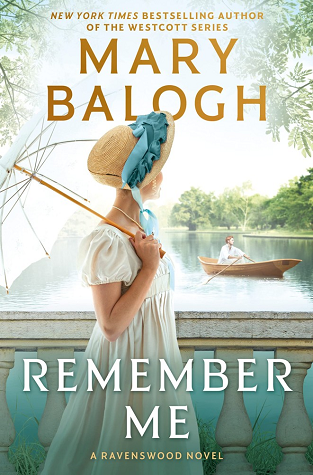 Remember Me (Ravenswood, #2) by
Remember Me (Ravenswood, #2) by 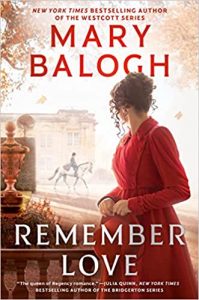 A scandal that touched Lucas every bit as closely as it did Pippa. But eavesdroppers seldom hear anything to their credit, and that was the case here. He owes her an explanation AND an abject apology. But it is water very much under the bridge at this point. That she let his words blight the next four years of her life isn’t ALL on him. Although she still doesn’t owe him the time of day.
A scandal that touched Lucas every bit as closely as it did Pippa. But eavesdroppers seldom hear anything to their credit, and that was the case here. He owes her an explanation AND an abject apology. But it is water very much under the bridge at this point. That she let his words blight the next four years of her life isn’t ALL on him. Although she still doesn’t owe him the time of day.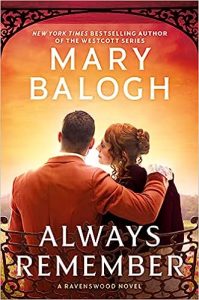 Your reading mileage may definitely vary. In fact, I hope it does because I think a LOT of people are going to love this book. I’m just not one of them although I certainly expected to be.
Your reading mileage may definitely vary. In fact, I hope it does because I think a LOT of people are going to love this book. I’m just not one of them although I certainly expected to be.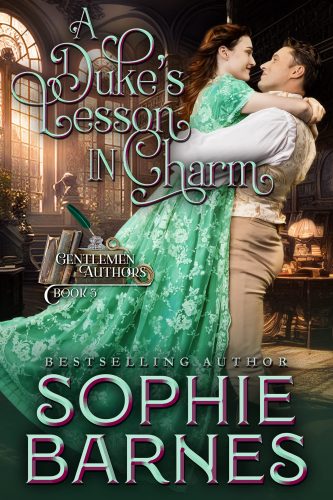 A Duke's Lesson in Charm (The Gentlemen Authors) by
A Duke's Lesson in Charm (The Gentlemen Authors) by 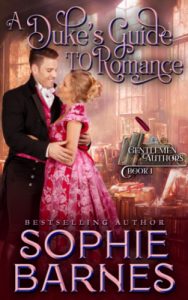 The first book,
The first book, 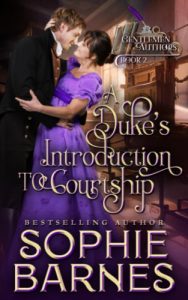 Escape Rating A-: This final book in the
Escape Rating A-: This final book in the 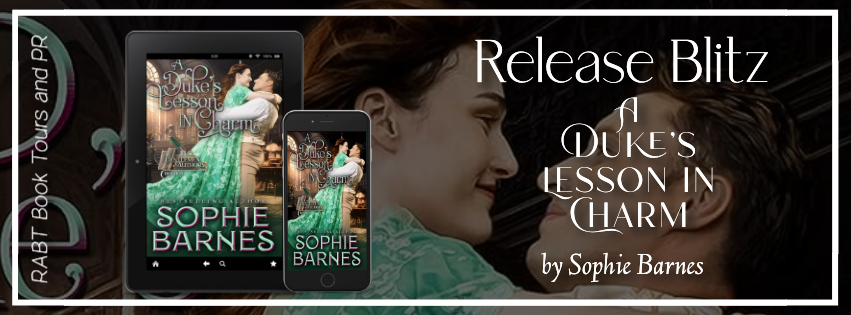
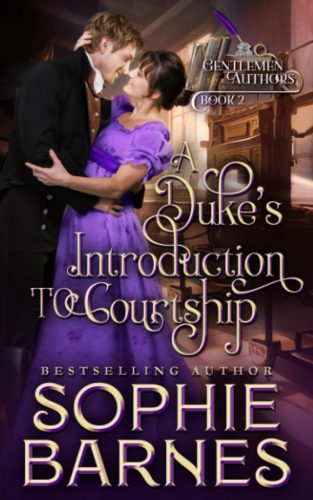 A Duke's Introduction to Courtship (The Gentlemen Authors #2) by
A Duke's Introduction to Courtship (The Gentlemen Authors #2) by 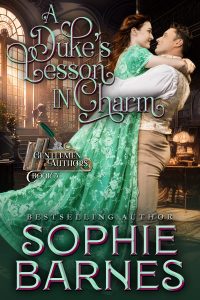 We’ve already seen the situation that Brody and his friends are in. It’s not exactly life-threatening, but it is serious from their perspective. First of all, they’ve all been really stupid and they all regret it. They all miss their fathers who were taken from them MUCH too soon. What allows the reader to have sympathy for a group of men who are fantastically well off but merely not as rich as they could be comes down to the way they approach their situation. They are not thinking of themselves but rather of the people who depend on them, and that’s a position that is easier to respect.
We’ve already seen the situation that Brody and his friends are in. It’s not exactly life-threatening, but it is serious from their perspective. First of all, they’ve all been really stupid and they all regret it. They all miss their fathers who were taken from them MUCH too soon. What allows the reader to have sympathy for a group of men who are fantastically well off but merely not as rich as they could be comes down to the way they approach their situation. They are not thinking of themselves but rather of the people who depend on them, and that’s a position that is easier to respect.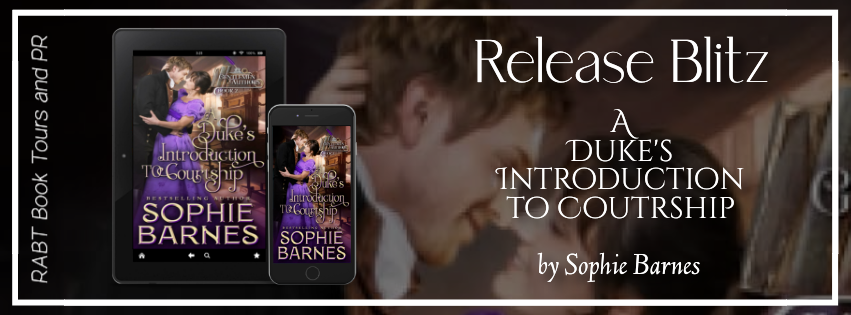
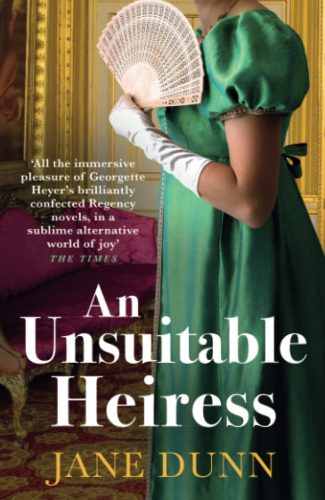 An Unsuitable Heiress by
An Unsuitable Heiress by 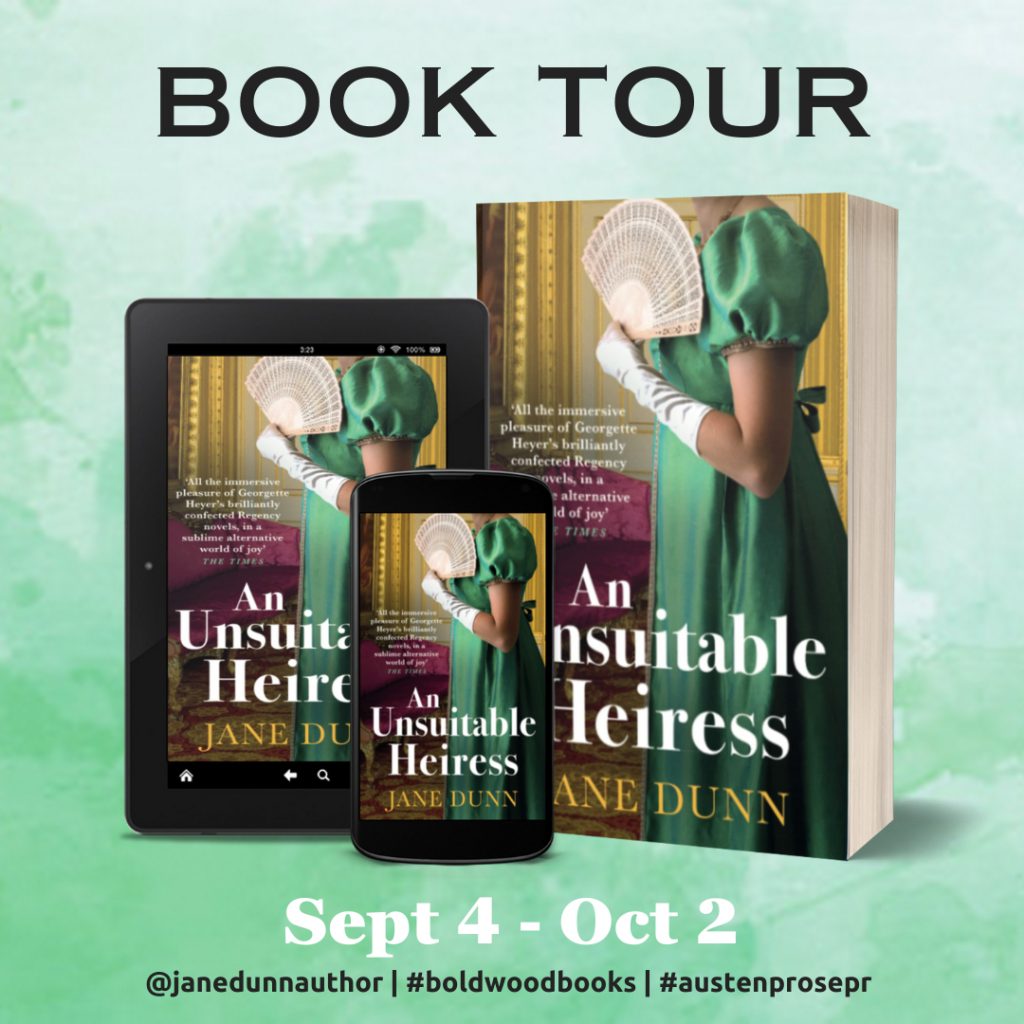
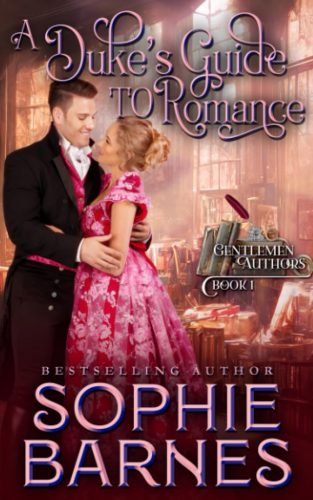 A Duke's Guide to Romance (The Gentlemen Authors #1) by
A Duke's Guide to Romance (The Gentlemen Authors #1) by 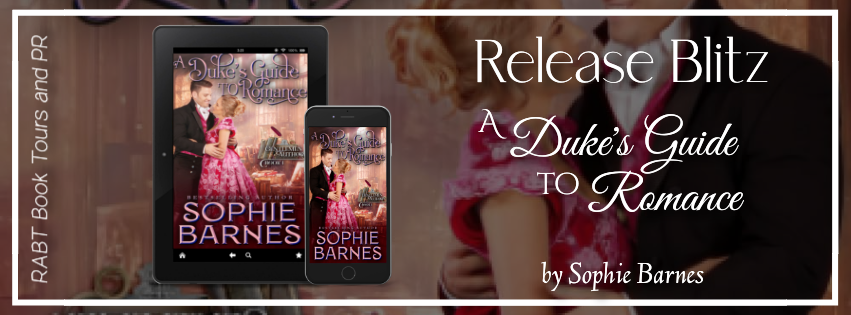
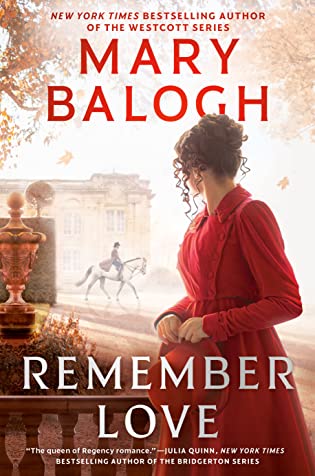 Remember Love (Ravenswood, #1) by
Remember Love (Ravenswood, #1) by 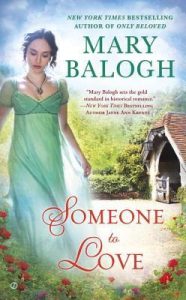 Escape Rating A-: The
Escape Rating A-: The 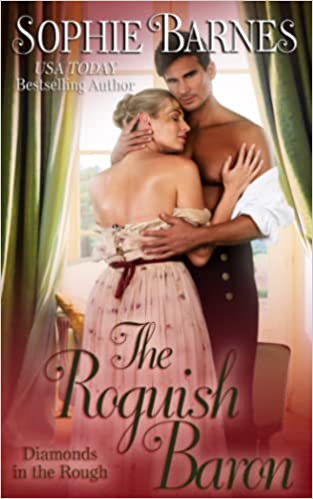 The Roguish Baron by
The Roguish Baron by 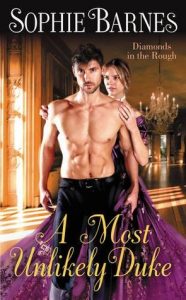 Escape Rating B: The
Escape Rating B: The 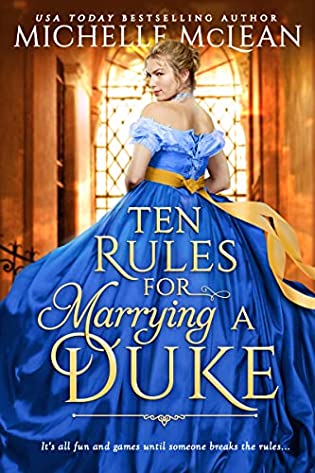 Ten Rules for Marrying a Duke by
Ten Rules for Marrying a Duke by 
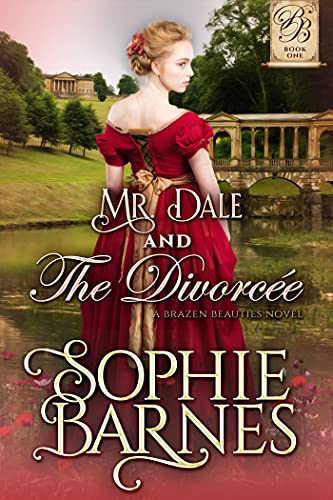 Mr. Dale and The Divorcée (The Brazen Beauties #1) by
Mr. Dale and The Divorcée (The Brazen Beauties #1) by